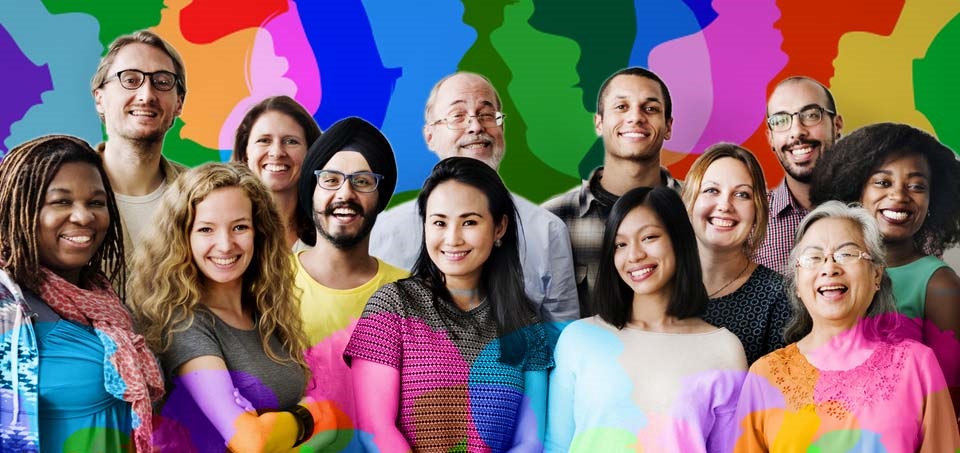
Stories Talk | Presentation Skills and Effective Storytelling
Stories Talk | Presentation Skills and Effective Storytelling
By Maria Biquet
Translated by Alexandros Theodoropoulos
Nevertheless, what really happens in everyday life? Do words become actions? Do we realise the concepts of Diversity, Inclusion and Equality and how do we apply them in a corporate environment?
We often talk passionately about our values and ethics and that usually leads us to a theoretical context where we safely express strong views. But when we are confronted with an incident, our behavior reveals our true values and beliefs and these are often far from our fancy statements of values and ethics.
This is pretty evident in companies that base their communication policies on inclusion, equality and diversity to keep up with modern times but in reality, they don’t change their hiring tactics. As a result, they always choose “safe solutions” and not any of the "outsiders".
A year ago I had a similar personal and very unpleasant experience when I was rejected from a collaboration due to "great experience and mainly due to age", which they did not hesitate to tell me directly! Coincidentally, at the same time, a company executive proudly presented his inclusion policy on a social network.
Such examples are many and ignore excellence, experience and objective abilities, focusing on age or even gender, a fact that clearly proves that no policy of Inclusion, Equality and Diversity has changed the way of thinking or the practices applied. The final choices are made in the same old and tested way, without anyone risking the goals of the company and their position.
This is not just a feature of companies in Greece. Workers all over the world are "punished" because they are over 50, or because they are not the right gender for the job, or because their body shows something different that automatically classifies them as "them" and not "us".
Consciously or unconsciously those who belong to "us" seem familiar; they don’t threaten us in any way, we have a common code of communication with them, we have the same way of thinking, the same expectations and we perceive the world in the same way. We have gone to the same school, we have the same interests, we go to the same places, we talk about the same topics and follow the same trends in social media. Those who belong to "us" are an easy case that doesn’t require effort on our part.

In contrast, if they belong to the category "They", it takes effort and willingness on our part to bridge the gaps of age, generation, culture, habits, perceptions, possibilities and language. Risk is also required as our efforts may not bring a positive result. The difficult part is that in companies, it is taken for granted that the best possible results should be brought within the shortest possible time, without the capacity for error, as the goals are set and the KPIs are standard.
Who will take the risk of a choice that may not fit the environment of a company and at the same time cost time and therefore money?
Due to the fact that economic outcomes depend on various and complex factors, we cannot accurately estimate, in line with the P&L, the final costs or profits of a company from the policies of Inclusion, Equality and Diversity.
What we are sure of is the ultimate benefits of human society when everyone is involved in working life.
Reality Check
People who stay out of work are excluded from much of their social life. Unemployment puts many people in extreme poverty. Without exaggeration, some people are unable to take care of their health, to offer their children proper education and to enrich their knowledge so that they will have the opportunity for employment in the future.
Exclusion from work implies exclusion from social life and the opportunity to participate in social events. Inclusion is a necessity for people and societies and is an essential part of Corporate Social Responsibility and of all the companies that are not only concerned about marketing, fame and awards.
The strong interest in DIEB (Diversity, Inclusion, Equality, Belongingness) policies started from the US and the UK in particular, where there was a great need for the market to include people with a variety of characteristics (racial, cultural, social).
In these countries, these policies have been developed, enriched and constantly evolving, while at the same time, companies and employees integrate them into their daily routine and context. Unfortunately, comparisons between countries are a difficult scenario, because each country has completely different characteristics, both in terms of labor market and at the level of cultural development.
The implementation of Inclusion, Equality and all corresponding policies is a matter of Ethics. Ethics needs a great deal of individual awareness on the part of every one of us, to reflect on what we do and what we choose to do.
Ethics requires courage to defeat the stable habits and the easy way, let alone the financial risks too.
Fiery words about Inclusion policies are very much a trend nowadays. They bring prizes and attract attention. But being ethically correct and matching words with actions is a difficult individual task that requires answers to important dilemmas, thinking out of and beyond the box and often sacrificing goals, KPIs and bonuses.
Unfortunately, for a large part of our society, ethics is "boring", doesn’t bring awards, doesn’t make fuss and is also considered a very old-fashioned term. So, we just stick to buzzword policies.
Ms. Maria Biquet is a Business Consultant and Executive Coach / Neurocoaching Expert specialising in Ethics in Business.
www.mariabiquet.com